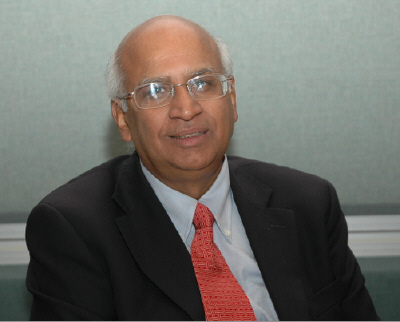Hypergrowth: Tata Consultancy Services

While I was at Software 2006, I spent a half an hour with Tata Consultancy Services, CEO S. Ramadorai, who has spent 34 years with the Mumbai-based company. Contrary to popular perceptions and Lou Dobbs, Ramadorai said that the linkage between TCS, technology providers and customers is more than just cost arbitrage. "We are strategic to each other," he said. "When you have strategic intent, you don't look at one year on a project. You look at what is the business and growth strategy and what kind of innovation you can create and what kind of alliance partnership and technology you can bring." The company works with the 100 largest banks, for example, defining architectures, developing applications, managing infrastructure, and providing application and business process outsourcing. That said, cost arbitrage is a key factor in TCS's growth, as well as the growing talent pool and economic output in India.
Last year the global service provider grew substantially, adding over 20,000 employees, for a total of 62,832, from 53 different nationalities, across 149 offices in 34 countries, including 8,500 employees in 50 offices throughout the U.S. TCS just reported its financial results for its fiscal year ending March 31, growing revenue grew 36.3 percent over the previous year to nearly $3 billion, with a net income of about $650 million. Over the the coming 12 months, TCS plans to add another 30,500 people, and has already made 9,200 campus offers for new recruits, according to a press release.

TCS, along with Indian competitors Infosys and Wipro, has major facilities in Europe, South America and China, where the company plans to have more than 5,000 people as part of a joint venture with Microsoft and the Chinese government. At the same time, U.S. outsourcing firms, such as Accenture, EDS and IBM, are staffing up in India (and other geographies), which is more about cost arbitrage. Ramadorai said that TCS hasn't experienced a talent shortage, but some competencies are in short supply, such as project and program management.
Ramadorai's view is that the business world today is more collaborative and connected in nature, including accessing markets, talent or acquiring services. "Tomorrow if there is a shift in manufacturing in India to service-oriented jobs, maybe some jobs will be gone. This applies to every country--they go through shifts in job patterns, old industries go through churn with job shifts and loss. The biggest challenge is having a culture of learning--you have to relearn, unlearn and continue the journey forever." Over time, no country or culture is immune from shifts that shake up job markets, like this country, which hasn't invested as India and China have in turning out science and engineering graduates...